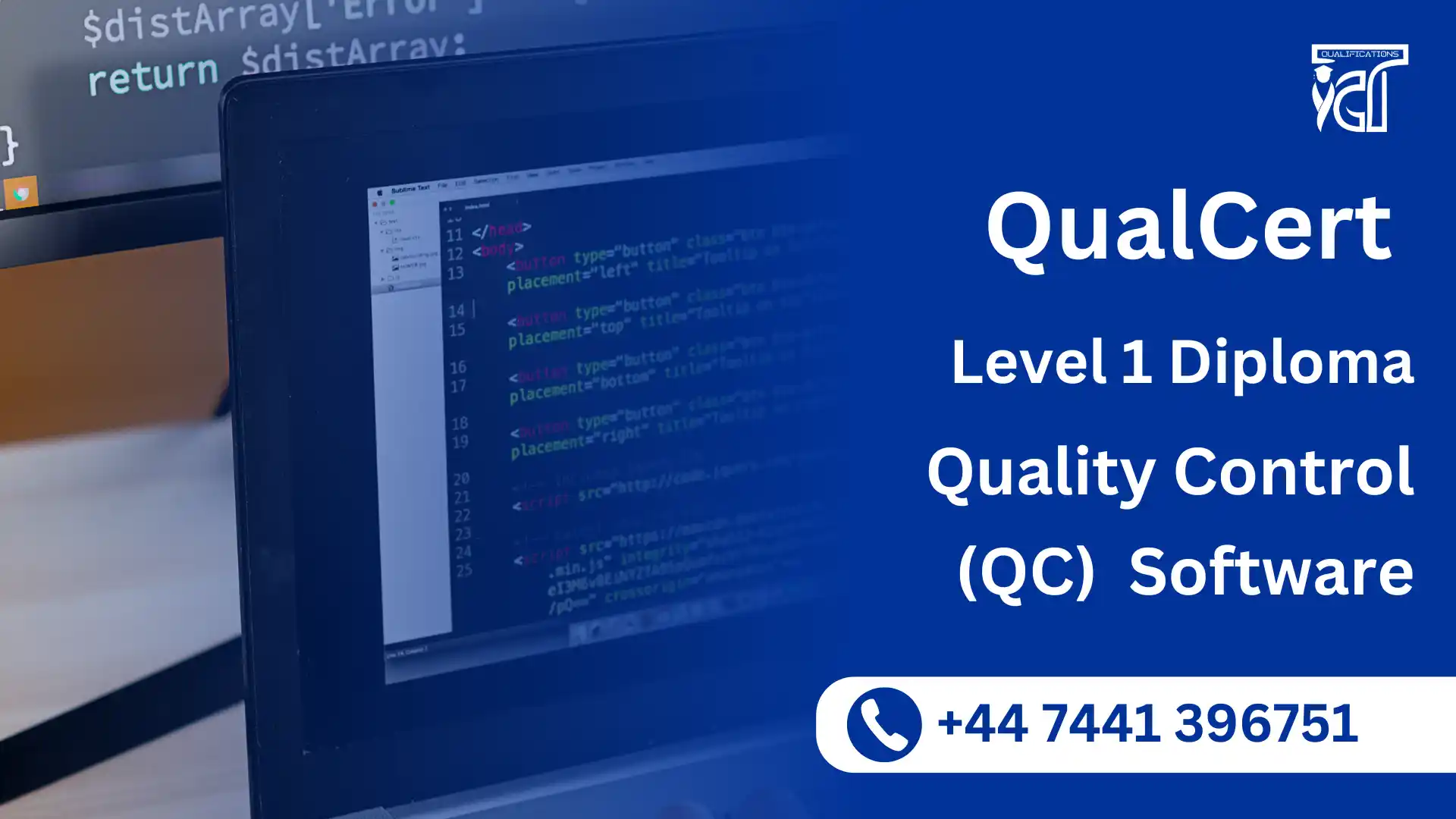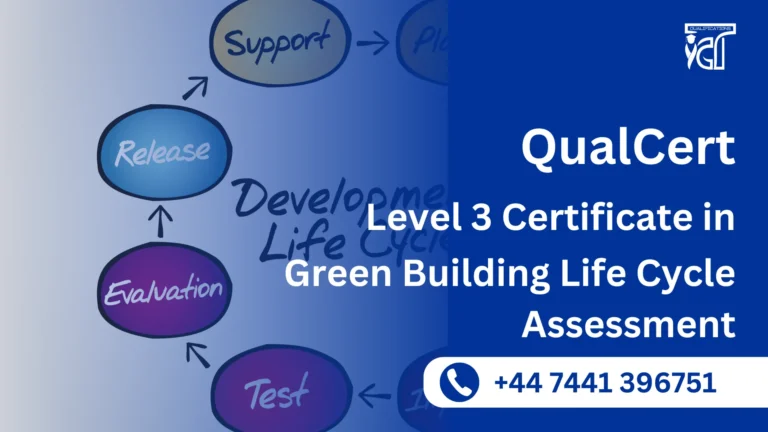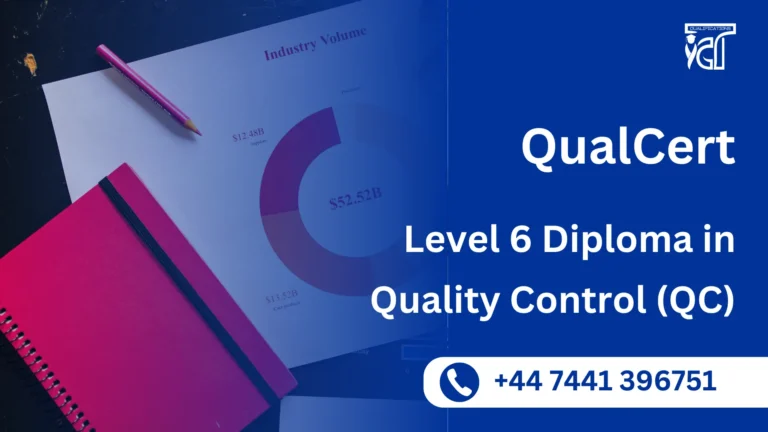The QualCert Level 1 Diploma in Quality Control (QC) Mechanical is a beginner-level qualification designed to introduce learners to the fundamental concepts of quality control within mechanical engineering environments. This course serves as an ideal starting point for individuals with no prior experience who are looking to explore a career in the mechanical or industrial sector.
The program provides a basic understanding of mechanical components, workshop discipline, safety procedures, and the importance of maintaining quality in simple production tasks. Learners will be introduced to essential tools, basic inspection activities, and elementary quality principles in a highly accessible and supportive learning environment.
Whether you’re a school leaver, a vocational training student, or someone with limited exposure to technical fields, this qualification lays the groundwork for future advancement. It helps build the confidence, knowledge, and practical skills required to progress into higher-level QC diplomas or junior technical roles in manufacturing, construction, and mechanical workshops.
QualCert Level 1 Diploma in Quality Control (QC) Mechanical
The QualCert Level 1 Diploma in Quality Control ( QC ) Mechanical comprises several study units designed to provide learners with a comprehensive understanding of QC principles and practices in the mechanical sector. Below is the qualification structure, including the Total Qualification Time (TQT) 180, Guided Learning Hours (GLH) 120, and 30 Credits associated with the program.
| Unit Ref# | Unit Title | Credit | GLH | TQT |
| QC12007 – 1 | Introduction to Mechanical Quality Control | 5 | 20 | 30 |
| QC12007 – 2 | Metrology and Calibration Techniques | 5 | 20 | 30 |
| QC12007 – 3 | Material Defects and Failure Analysis | 5 | 20 | 30 |
| QC12007 – 4 | Quality Control in Manufacturing Processes | 5 | 20 | 30 |
| QC12007 – 5 | Fundamentals of Reliability Engineering | 5 | 20 | 30 |
| QC12007 – 6 | Introduction to Non-Destructive Testing (NDT) | 5 | 20 | 30 |
GLH (Guided Learning Hours) and TQT (Total Qualification Time) are terms commonly used in vocational qualifications to help define the amount of time a learner is expected to spend on their studies.
1. GLH (Guided Learning Hours)
GLH refers to the number of hours a learner spends being directly taught, supervised, or supported during their course. This includes the time spent in activities such as:
- Classroom instruction
- Practical workshops
- One-on-one tutoring or mentoring sessions
- Online learning sessions with tutor support
In other words, GLH represents the time that learners are actively engaged with their instructors or learning activities.
2. TQT (Total Qualification Time)
TQT represents the total amount of time a learner is expected to invest in completing a qualification, including:
- GLH (Guided Learning Hours): Time spent on direct learning, as explained above.
- Self-Directed Learning: This includes time spent on independent study, research, assignment completion, preparation for exams, and any other work the learner does outside of direct teaching hours.
TQT is a broader measure that includes all the time required to achieve the qualification. It helps learners and employers understand the overall commitment required for the qualification.
Key Differences Between GLH and TQT:
- GLH focuses on direct learning with guidance or supervision.
- TQT includes GLH as well as independent study time and other learning-related activities.
Example:
If a qualification has a TQT of 600 hours and a GLH of 250 hours, it means the learner should spend 250 hours in direct learning (classroom, online, or tutor-led sessions) and 350 hours on independent study or research.
Introduction to Mechanical Quality Control
- Understand the fundamental principles and importance of quality control in mechanical engineering.
- Identify key quality management systems and their applications in the industry.
- Recognize the role of quality control in improving product reliability and customer satisfaction.
Metrology and Calibration Techniques
- Explain the significance of metrology in mechanical quality assurance.
- Operate precision measurement instruments and perform accurate calibrations.
- Ensure compliance with industry standards through effective calibration procedures.
Material Defects and Failure Analysis
- Identify common material defects and their impact on mechanical performance.
- Utilize failure analysis techniques to determine the root cause of mechanical failures.
- Implement corrective measures to enhance material durability and reliability.
Quality Control in Manufacturing Processes
- Apply quality control techniques to monitor and improve manufacturing processes.
- Conduct process inspections to ensure product conformity and minimize defects.
- Utilize statistical tools to analyze production data and optimize quality outcomes.
Fundamentals of Reliability Engineering
- Understand the principles of reliability engineering and its application in mechanical systems.
- Assess the reliability of mechanical components using predictive analysis techniques.
- Implement strategies to enhance system dependability and reduce failure rates.
Introduction to Non-Destructive Testing (NDT)
- Explain the principles and benefits of non-destructive testing in mechanical quality control.
- Identify common NDT methods such as ultrasonic, radiographic, and magnetic particle testing.
- Apply NDT techniques to detect internal and surface defects without damaging components.
Course Benefits: QualCert Level 1 Diploma in Quality Control (QC) Mechanical
The QualCert Level 1 Diploma in Quality Control (QC) Mechanical offers a wide range of benefits for individuals taking their first steps into the world of mechanical quality control. This course is designed to provide foundational skills and confidence in a supportive and beginner-friendly environment.
Key Benefits:
- Introduction to QC and Mechanical Basics
Learners gain an early understanding of basic quality control concepts, mechanical parts, and workshop environments. - No Experience Needed
Designed for absolute beginners, the course is accessible to anyone interested in mechanical work or industrial safety. - Builds Core Work Habits
Emphasizes discipline, responsibility, and attention to detail—qualities essential in quality control and engineering workplaces. - Prepares for Further Learning
Serves as a stepping stone toward higher-level qualifications in Quality Control, Mechanical Engineering, or Technical Inspection (e.g., Level 2 or 3 Diplomas). - Enhances Job Readiness
Helps learners prepare for entry-level roles such as QC helper, production assistant, or workshop support staff. - Safety Awareness
Introduces learners to key workplace safety principles, preparing them for real-world industrial settings. - Confidence Building
Develops communication, teamwork, and basic technical skills, boosting learner confidence in handling mechanical tools and tasks. - Industry-Relevant Foundation
Offers early exposure to tools, materials, and procedures used in manufacturing, maintenance, and engineering workshops. - Flexible Learning Pathway
Supports a smooth transition from general education into vocational and technical fields. - Recognized Qualification
Provides an accredited certification that demonstrates commitment and readiness to enter the mechanical workforce.
Ideal Learner for QualCert Level 1 Diploma in Quality Control (QC) Mechanical
The ideal learner for the QualCert Level 1 Diploma in Quality Control (QC) Mechanical is someone who is new to the mechanical or industrial field and is looking for a practical, accessible introduction to quality control principles.
This course is ideal for:
- School Leavers and Young Adults
Individuals who have recently completed basic education and are exploring technical or vocational career paths. - Beginners with No Technical Background
People with little or no prior knowledge of mechanical systems or quality control who are eager to start learning from the ground up. - Vocational Training Students
Learners currently enrolled in technical or trade institutes who want to strengthen their foundational understanding of QC in mechanical settings. - Workshop or Factory Helpers
Entry-level workers or assistants in production environments who want to formalize their knowledge and open opportunities for growth. - Career Starters in Technical Fields
Individuals seeking their first qualification in the engineering or manufacturing industry. - Unemployed Youth Seeking Skills
Young people who are unemployed or out of formal education and want to gain skills that improve employability in technical trades. - Individuals Exploring Career Options
Learners who are unsure of their exact career path but have an interest in mechanical work, tools, or quality assurance and want to test the field.
This course is best suited for those who are hands-on, disciplined, and motivated to enter the workforce with a solid foundation in mechanical quality control practices.
Entry Requirements
Entry Requirements: QualCert Level 1 Diploma in Quality Control (QC) Mechanical
The QualCert Level 1 Diploma in Quality Control (QC) Mechanical is designed to be inclusive and beginner-friendly, making it accessible to a wide range of learners. The entry requirements are minimal to allow early access to technical training and career development.
- Age Requirement:
- Applicants must be at least 15 years old at the time of enrollment.
- Educational Background:
- No formal academic qualifications are required.
- Basic literacy and numeracy skills are recommended to follow instructions and complete simple tasks.
- English Language Proficiency:
- Learners should be able to read and understand basic English.
- This can be demonstrated through prior schooling or an informal assessment by the training provider.
- No Prior Experience Required:
- The course is open to complete beginners. No previous experience in mechanical work or quality control is needed.
- Willingness to Learn:
- Candidates should show a genuine interest in hands-on learning, safety practices, and basic mechanical work.
Register Now
Qualification Process
Qualification Process for the QualCert Level 1 Diploma in Quality Control (QC) Mechanical
- Self-Assessment:
Begin by evaluating your eligibility to ensure you meet the qualification requirements, including work experience, knowledge, and language proficiency. - Registration:
Complete your registration by submitting the required documents, including a scanned copy of a valid ID, and paying the registration fee. - Induction:
An assessor will conduct an induction to confirm your eligibility for the course and explain the evidence requirements. If you do not meet the criteria, your registration will be canceled, and the fee will be refunded. - Assignmnets & Evidence Submission:
Provide all assignmnets and the necessary evidence based on the assessment criteria outlined in the course. If you are unsure of the required evidence, consult with the assessor for guidance on the type and nature of evidence needed. - Feedback and Revision:
The assessor will review your submitted evidence and provide feedback. Evidence that meets the criteria will be marked as “Criteria Met,” while any gaps will be identified. You will be asked to revise and resubmit if needed. - Competence Evidence:
Submit final evidence demonstrating that all learning outcomes have been met. This evidence will be marked as “Criteria Met” by the assessor once it is satisfactory. - Internal Quality Assurance (IQA):
The Internal Quality Assurance Verifier (IQA) will review your evidence to ensure consistency, quality, and compliance with standards. - External Verification:
The IQA will submit your portfolio to QualCert External Quality Assurance Verifiers (EQA) for final confirmation. The EQA may contact you directly to verify the authenticity of your evidence. - Certification:
Upon successful completion of all checks, QualCert will issue your official certificate, confirming that you have attained the QualCert Level 1 Diploma in Quality Control (QC) Mechanical.







